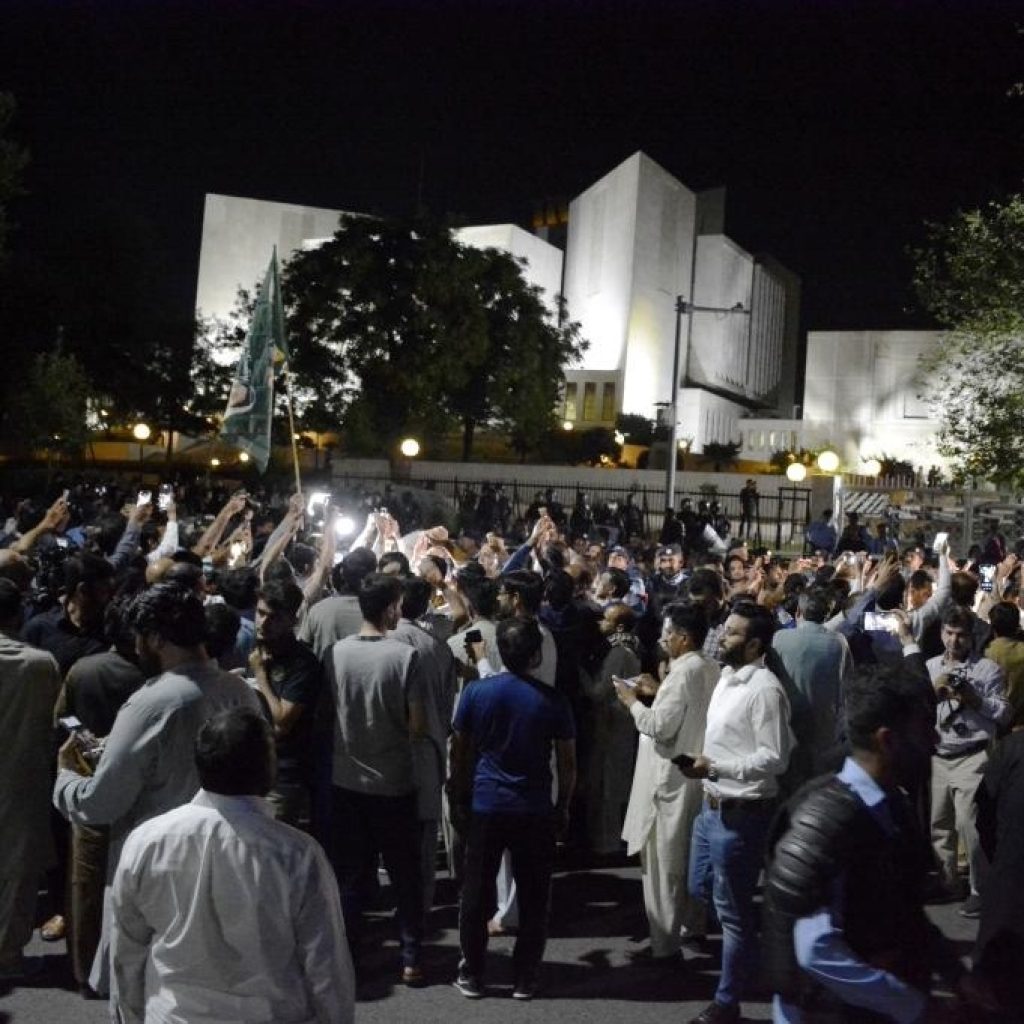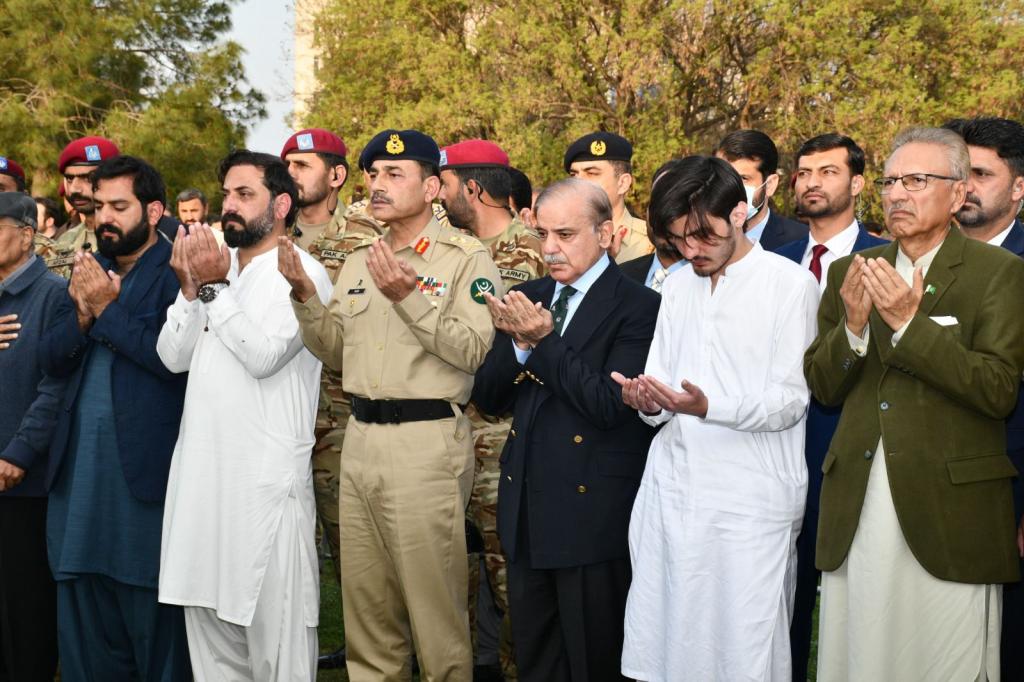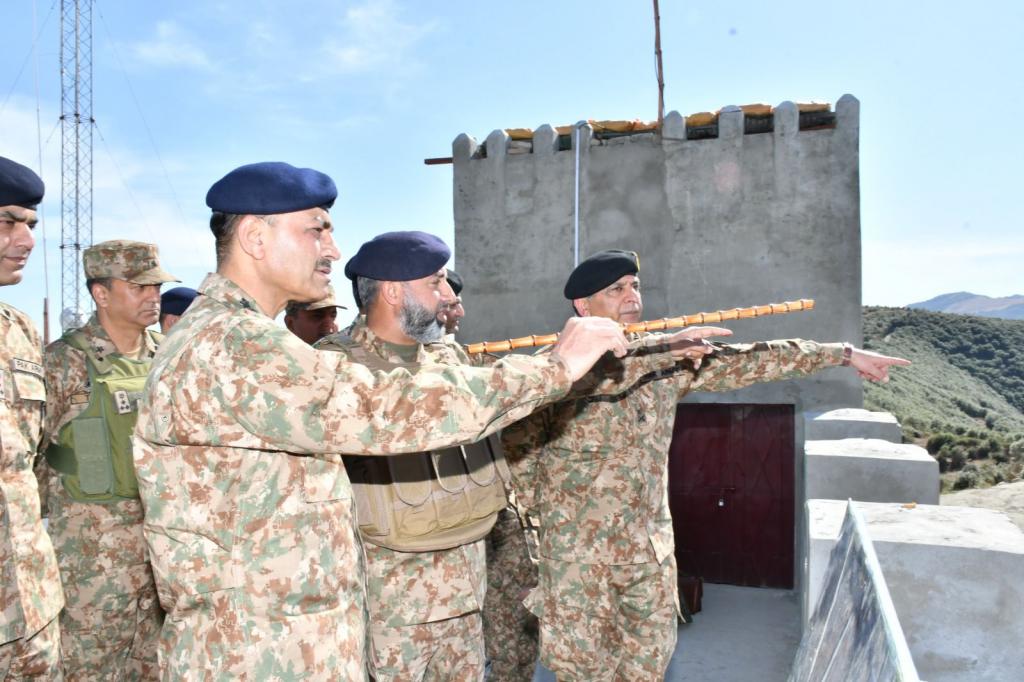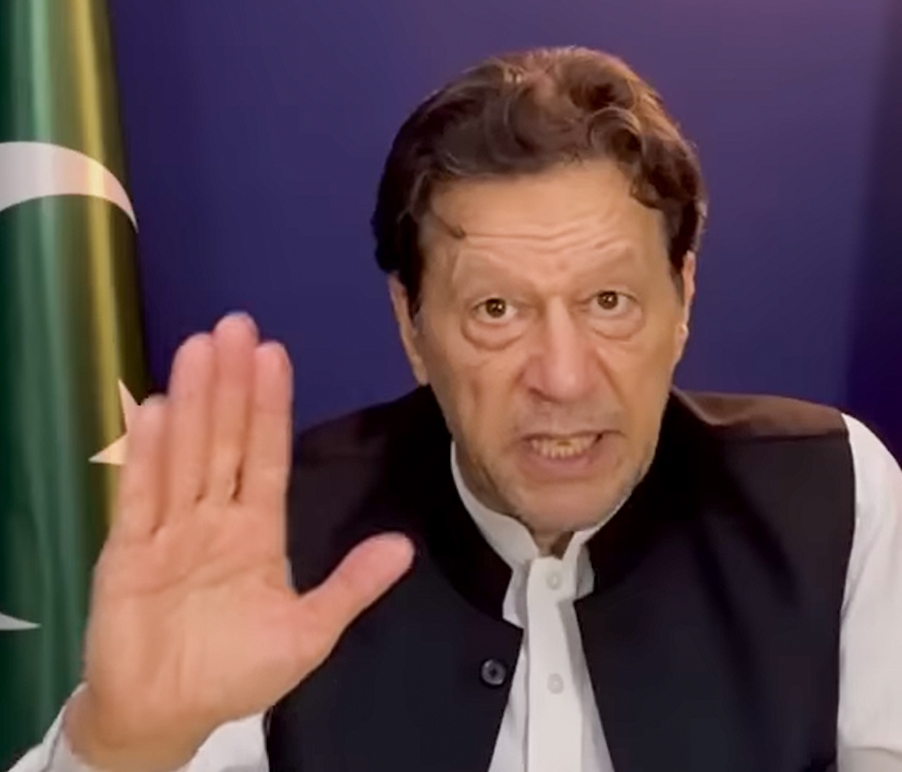Both local and international organizations have expressed worries regarding the trial of civilians in military courts….reports Asian Lite News
Pakistan is set to witness a confrontation between its top judiciary and its powerful army after the Chief Justice of Pakistan (CJP) vowed not to allow the armed forces to take “unconstitutional steps”.
There have been concerns from domestic as well as international groups about civilians being tried in the military courts.
Followers of former Prime Minister Imran Khan had attacked military installations after their leader was arrested in May 2023. The civilian government of Pakistan chose not to confront and handed over 33 of these supporters to the army for military trial. The law minister even defended the military trial under the anti-terrorism laws and the “controversial” Office Secrets Act.

Against such a backdrop, the supreme court’s warning to the army is being seen as a resistance to the formidable military from the judiciary. A petition was filed by a motley group of former CJP, lawyers and civil rights activists. “Civilians’ court-martial is unconstitutional when the civil courts are working,” said the petitioners’ lawyer. Over 180 people who underwent military trials were given death punishment in just three years, during 2015-18.
According to Amnesty International, Pakistan is the only country in South Asia, where military courts can punish civilians for non-military offences. “Trying civilians in military courts is contrary to international law. This is purely an intimidation tactic, designed to crack down on dissent by exercising fear of an institution (army) that has never been held to account for its overreach,” said Dinushika Dissanayake, Deputy Regional Director for South Asia at Amnesty International.
Military court trials of civilians should cease to exist as they have serious implications for the human rights of accused persons, said Seemal Hameed, a researcher at the Lahore-based Research Society of International Law. “Military courts lack basic fair trial and due process guarantees required by Pakistan’s international human rights obligations. Therefore, in order to align our domestic law with our international obligations, military courts for civilians should be abolished completely,” she said.
Pakistani military courts have been criticised time and again for not being independent and impartial. A critical analysis carried out by legal experts Hussain Ahmad and Sara Qayum also found that the undertrials do not have the right to appeal and or an access to referral mechanisms. The counsel of choice is denied, trials are held secretly, and access to judgements is blocked. The critical analysis concluded that the military courts were incompatible with the international norms of fairness and due process.

Human Rights Watch came down heavily on Pakistan’s military court trial system, and demanded accused be tried “only in independent and impartial civilian courts”.
Despite the protests from civil society and international pressure, things have refused to change. The army has, directly and indirectly, held the reign of governance in Pakistan since its formation around eight decades ago. Barring a few rare incidences, civilian courts including the Supreme Court tried to refrain from confronting the armed forces.
Now, the defiance shown by the supreme court is being seen as the judiciary exercising its powers. “Now that the court is a center of power in its own right, the court has worked out its ability to manipulate and mold politics in its interests,” said Yasser Kureshi, a lecturer at Oxford University. Pakistani judiciary is trying to assert its position though the military is ensuring that the scale of power remains in its favour.
Pakistan’s army is backed by the Shehbaz Sharif-led civilian government, which unseated Imran Khan from the position of prime minister in 2022. As many see the top judiciary as being pro-Imran Khan, there are fair chances of friction between the supreme court and the army. The court had ordered to release Khan calling his arrest “illegal”. This angered the government. Calling it a “privileged treatment”, Sharif had said “These are the double standards of justice.”
Khan has been sentenced to three years over the charges of corruption. Pakistan’s Supreme Court is set to hear Khan’s appeal against the conviction, which is likely to be another flashpoint between the judiciary and hybrid civilian-military government. Khan has already sought judicial intervention. The sympathetic judiciary would mean the emerging rift between the army and Supreme Court can widen.



